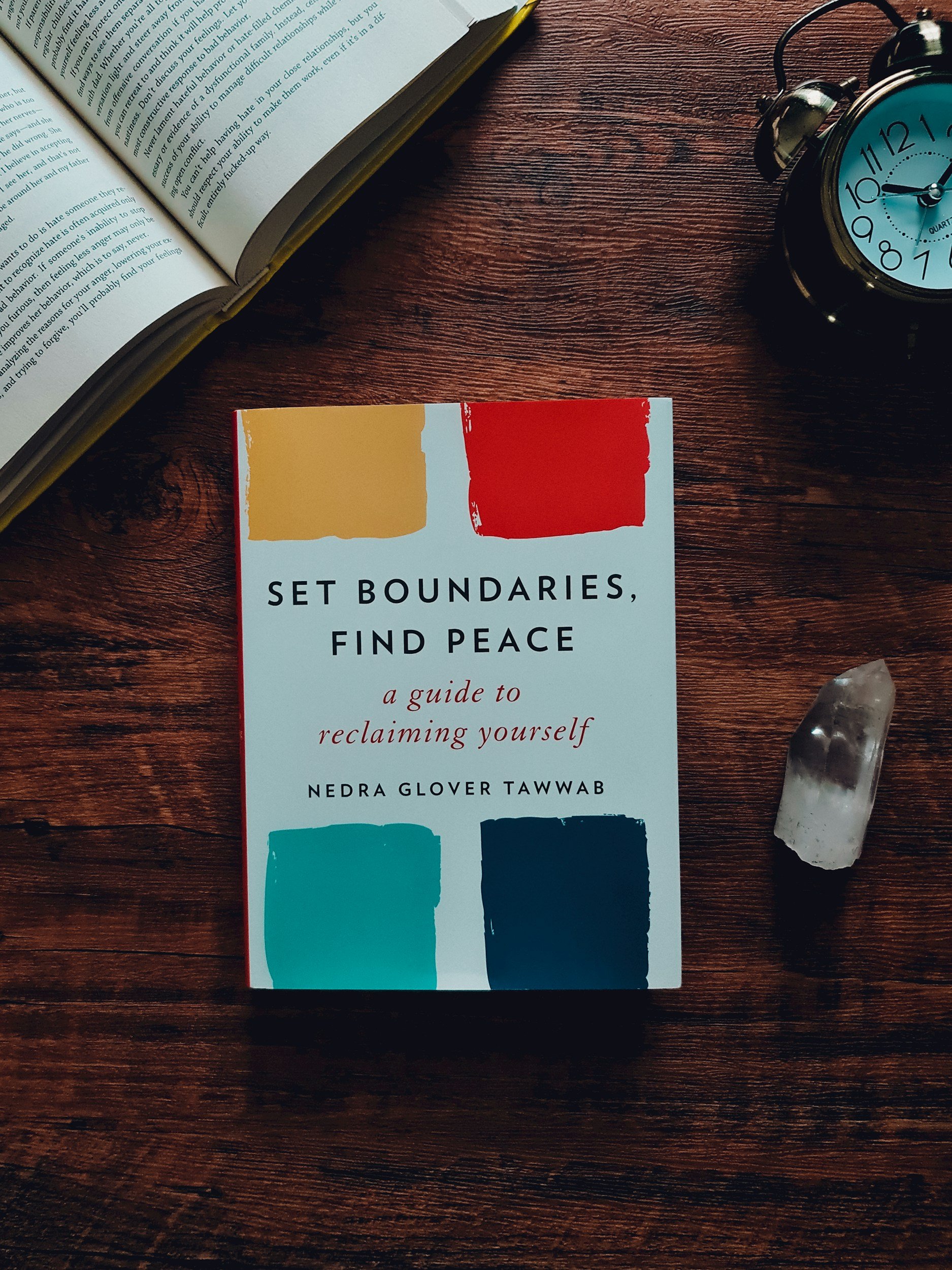How to Set Boundaries at Work and Home — Especially If You’re a People-Pleaser, Overthinker, or Perfectionist
If you’ve ever said yes when every part of you wanted to say no, you’re not alone. For people-pleasers, overthinkers, and perfectionists, boundaries can feel like foreign territory — something you should do but can’t seem to actually implement.
You might read about “self-care” and “protecting your peace,” but in practice, boundaries often bring up guilt, fear, or worry about being seen as selfish.
From an Internal Family Systems (IFS) and attachment perspective, that hesitation makes perfect sense.
What Are Boundaries, Really?
Boundaries are the guidelines, limits, and expectations we set for how we want to be treated — by others and by ourselves. They help define what’s okay for us and what’s not okay, and the consequences of not respecting these guidelines.
As therapist and author Nedra Glover Tawwab explains in Set Boundaries, Find Peace:
“Boundaries are expectations and needs that help you feel safe and comfortable in your relationships. When you set and communicate them, you protect your peace.”
In other words, boundaries aren’t walls — they’re frameworks that make relationships more sustainable. They allow you to show up with honesty and care, rather than resentment or exhaustion.
Why Boundaries Feel Hard
When you struggle to set limits, it’s not because you’re weak — it’s because different parts of you are trying to keep you safe.
A People-Pleaser Part learned that being agreeable earns love and stability.
A Perfectionist Part equates worth with performance, productivity, or reliability.
An Overthinking Part stays hyper-vigilant to cues of disappointment or disconnection.
If your early attachment experiences taught you that connection was conditional — based on how well you behaved, achieved, or anticipated others’ needs — saying no may register in your body as danger.
In IFS terms, your protective parts step in quickly to manage that risk. They’d rather you overextend than feel the pain of rejection.
The Truth: Boundaries Protect Connection
Boundaries are not about pushing people away — they’re about creating enough space for closeness to actually feel safe.
When we chronically overgive or overperform, resentment builds. We end up disconnecting from others or ourselves. Boundaries restore honesty and self-respect, which are prerequisites for authentic connection.
When you’re clear about what you can and can’t give, relationships have a chance to deepen in trust.
Boundaries don’t make you less caring — they make your care more sustainable.
Boundaries at Work
Work is often where boundary struggles show up first — especially for high-achievers. Here are a few common patterns:
The “Always Available” Employee
Your boss Slacks you at 9 PM. One part of you wants to respond right away; another part feels resentful.
Check in: Which part is driving my impulse to respond?
Offer reassurance: We can still be competent and respected without being constantly available.
Practice saying: “I’ll look into that first thing tomorrow morning.”
This small act tells your nervous system that connection and professionalism don’t require self-sacrifice.
The Over-Committed Team Player
You say yes to new projects even when you’re at capacity. A perfectionist part might believe saying no will make you seem ungrateful or lazy. Try reframing:
“I’d love to support that, but I’m at capacity this week. Can we revisit it next month?”
This honors your internal parts — the one that wants to be helpful and the one that needs rest.
Boundaries at Home
Home dynamics often activate attachment patterns even more deeply.
The Emotional Caretaker/People-Pleaser
You find yourself managing everyone’s moods — smoothing tension, anticipating needs, holding space for everyone but yourself. That’s your Caretaker Part, often tied to anxious attachment, working overtime to maintain closeness.
Try:
“I love that I care so much, but I need to step back and let others hold their own feelings.”
You’re still connected — just not responsible for everyone’s emotional state.
The Over-Functioner/Perfectionist
You’re the planner, the cleaner, the doer — quietly carrying the invisible load. A part of you fears, If I stop, things will fall apart. Practice naming it:
“I’d like to revisit how we divide things. I’m happy to keep doing X, but I need you to take on Y.”
You’re teaching your system that love and belonging don’t require over-functioning.
What IFS and Tawwab Teach Us About Healthy Boundaries
IFS invites you to listen, not bulldoze, your parts. Before setting a boundary, get curious:
What is this part afraid will happen if I say no?
When did it first learn that boundaries lead to disconnection?
What does it need from me to feel safe enough to try something different?
As Tawwab reminds us, consistency is key. A boundary that’s enforced sometimes and dropped other times won’t hold — for you or for others. Clarity + follow-through builds inner trust and relational safety.
Over time, your parts begin to learn that boundaries don’t lead to abandonment. They lead to balance.
If This Resonates
If you find yourself overanalyzing every “no,” or if boundary-setting still feels unsafe in your body, therapy can help you build internal safety first.
Together, we can work on helping your parts trust that you don’t have to earn connection by overextending yourself.
You deserve boundaries that protect your energy and allow for real, mutual connection.
If you’re ready to start setting boundaries, I offer in-person anxiety therapy in Philadelphia and online therapy across Pennsylvania and New Jersey.
Contact Me Today to learn how therapy can help you find balance and relief.
